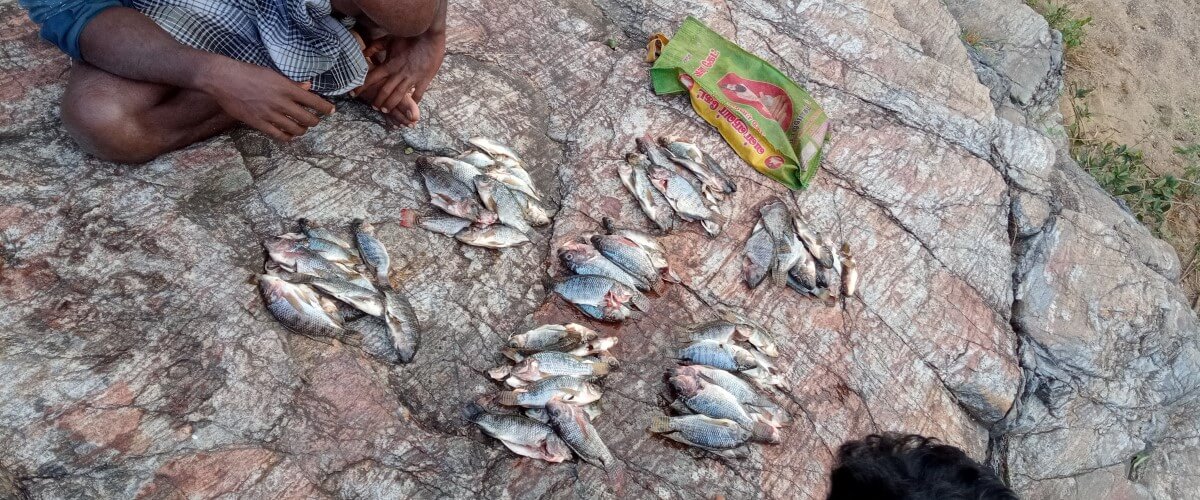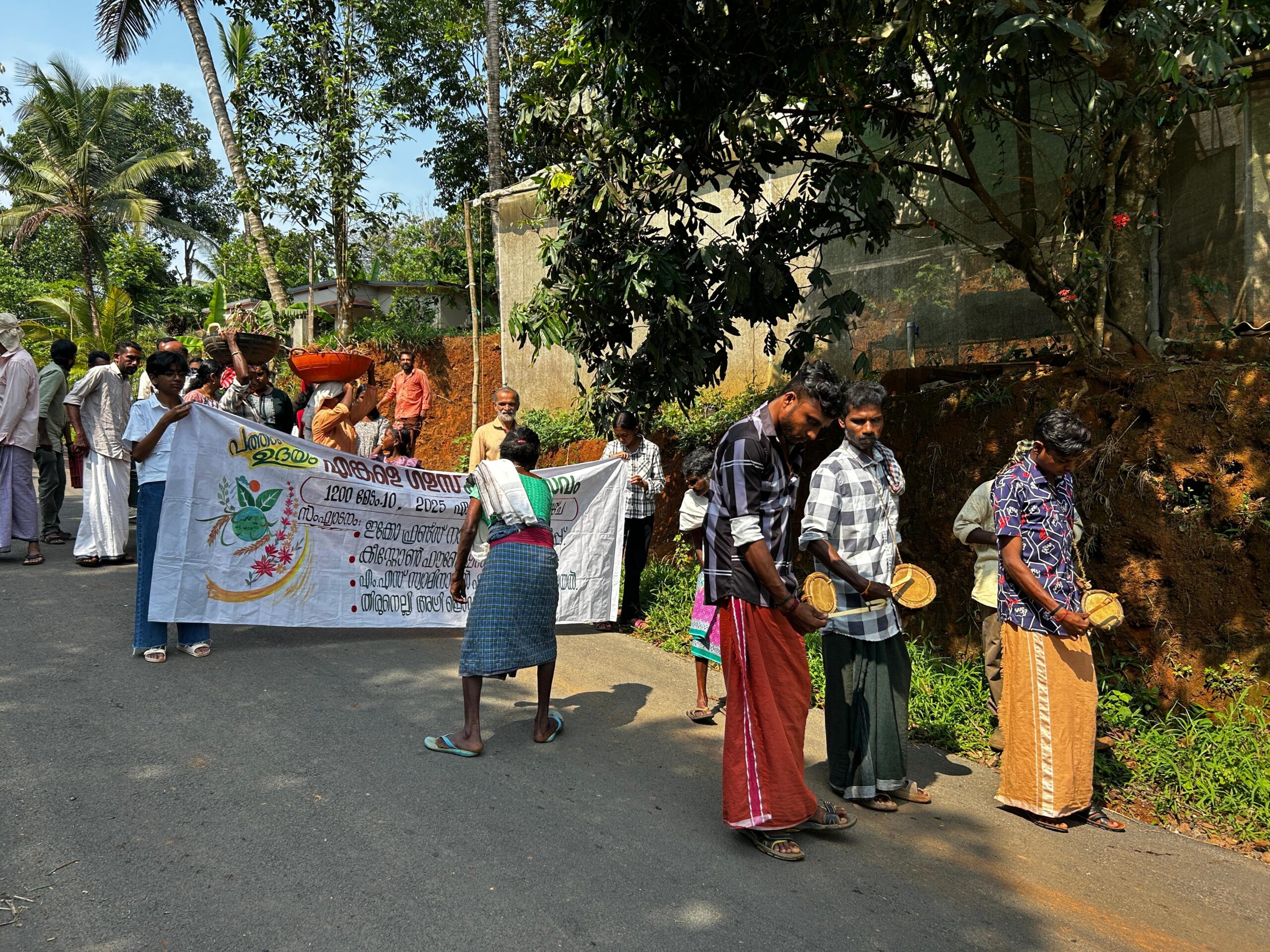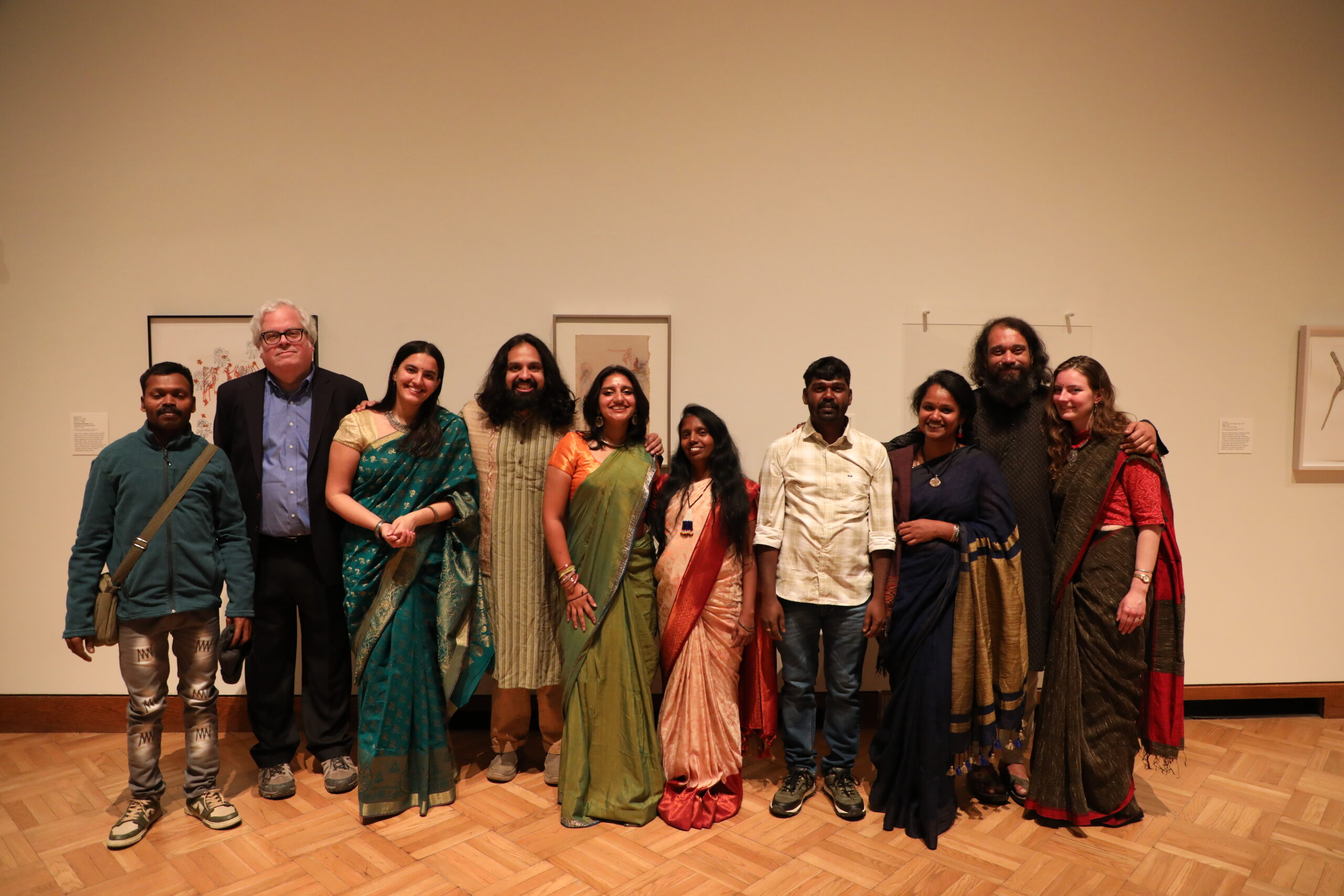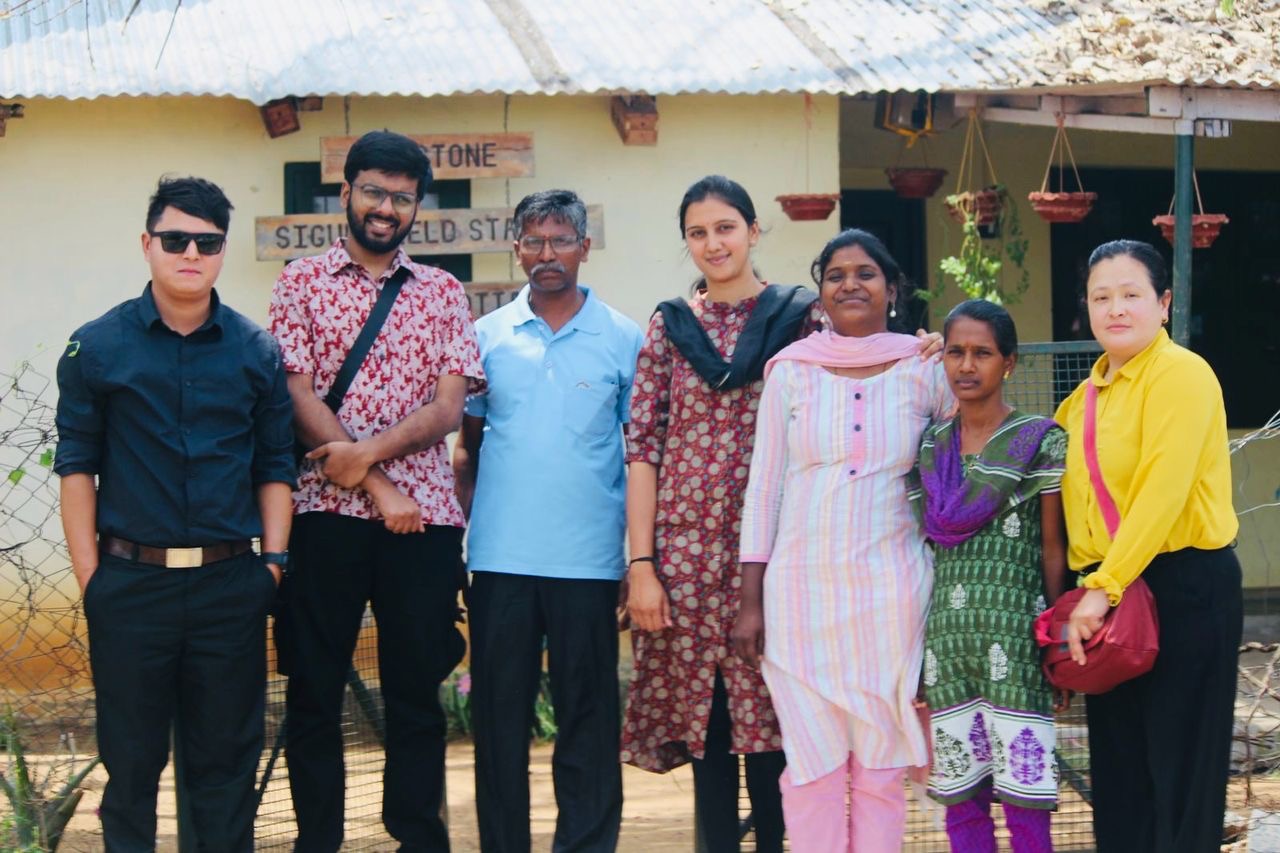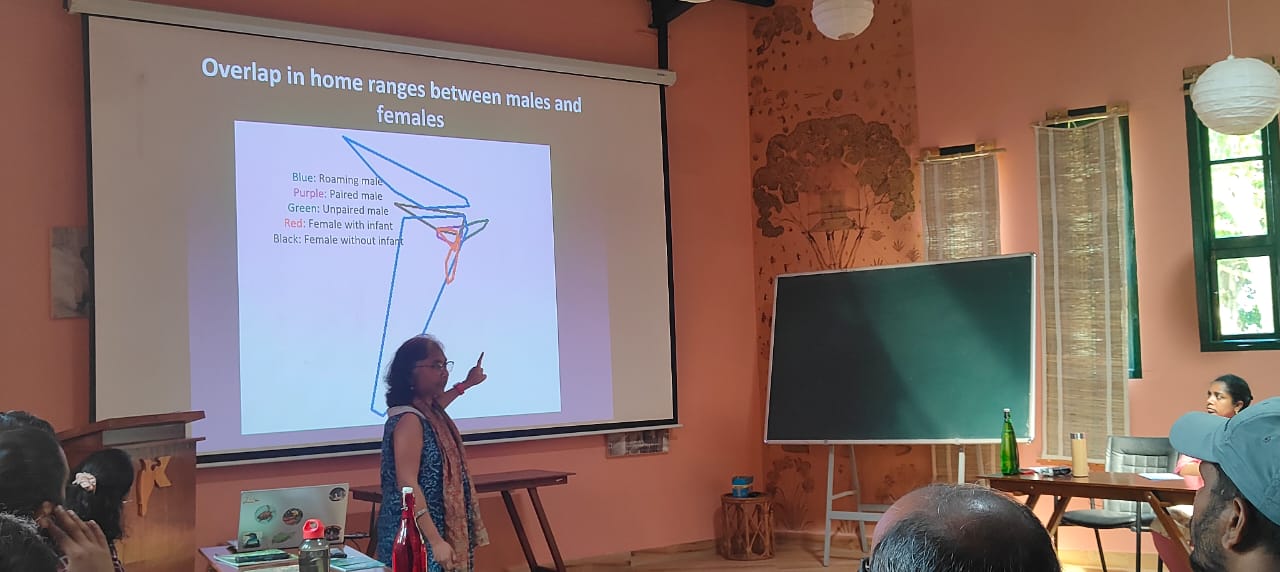February 2, 2023
By Vijayan (Community Resource Person in Sathyamangalam), Murugan, Nagumani, Veeran, Karubantan, Thangaraj and Nagaraj (members of the Uralis tribe)
We reside in Selappan Dhoddi village in the Sathyamangalam Tiger Reserve, and are permitted by the forest department to practice our fishing in the forest springs. One day, we decided to go to a spring nearby called Kanuve Maduvu. The walk to the spring is four kilometres long and quite an enjoyable one, dotted by many Prosopis trees and sometimes, herds of spotted deer. At the spring, we took a moment to quietly rest and then began tossing our nets into the water. We caught what easily seemed like ten kilos of ‘jalebi fishes’ or Tilapia using a combination of mosquito nets and fish nets. Later in the afternoon, we picked and munched on elanda pazham (known as ber in Hindi, or Indian jujube) from the trees.
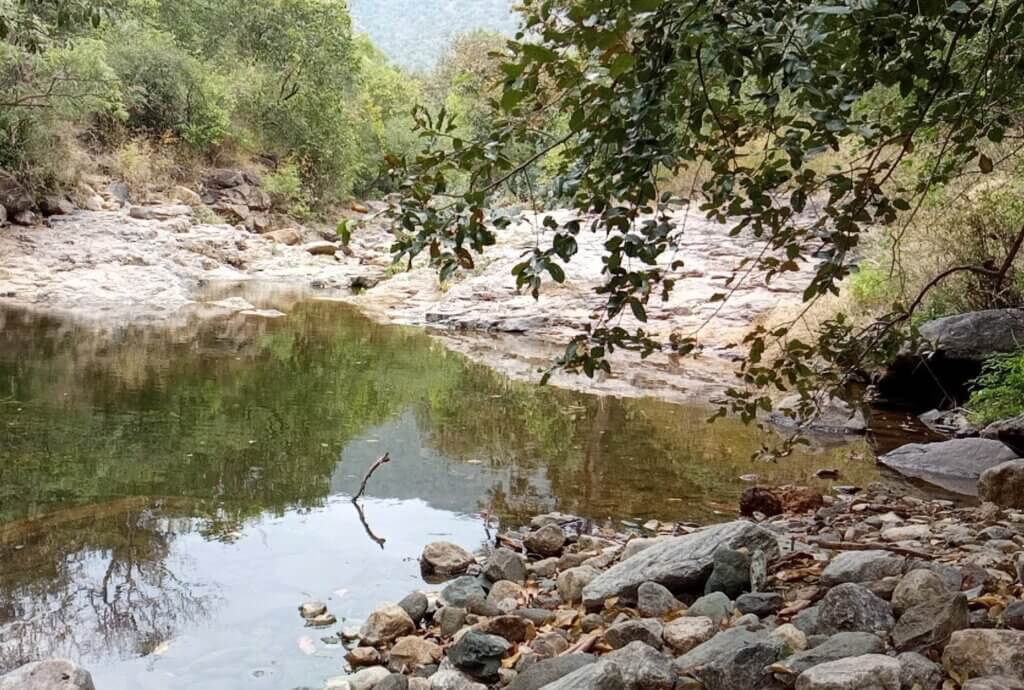
While we were busy cleaning our catch in the spring after our snack, a wild elephant appeared, only 50 metres away from us. Thankfully, we are always prepared for such an encounter – to drive the elephant away, we used four elephant dung balls to light a fire. The smell of the smoke seemed to put off the elephant, who disappeared back into the folds of the forest. Later, at around 3:30 pm., when we were done cleaning the fishes, a herd of six elephants sauntered to the spring to drink water and rest on its bank! Except for Murugan and Karubantan who inched closer, we all moved away. Striking sounds like that of knives being sharpened on a rock or hitting rocks against each other helped drive the animals away.
The seven of us divided the fishes among ourselves and began the walk back to our homes at around 6 pm., just as the sky darkened. On the way home, we found spotted deer, hanuman langur, gaur and junglefowl. Our catch made for a delicious dinner that day, at our respective homes. Uppu kanda is a locally popular dish, made by rubbing turmeric and salt onto the fishes, and drying them for 10-20 days in the sun or on a fire, to help keep earthworms or other insects away.
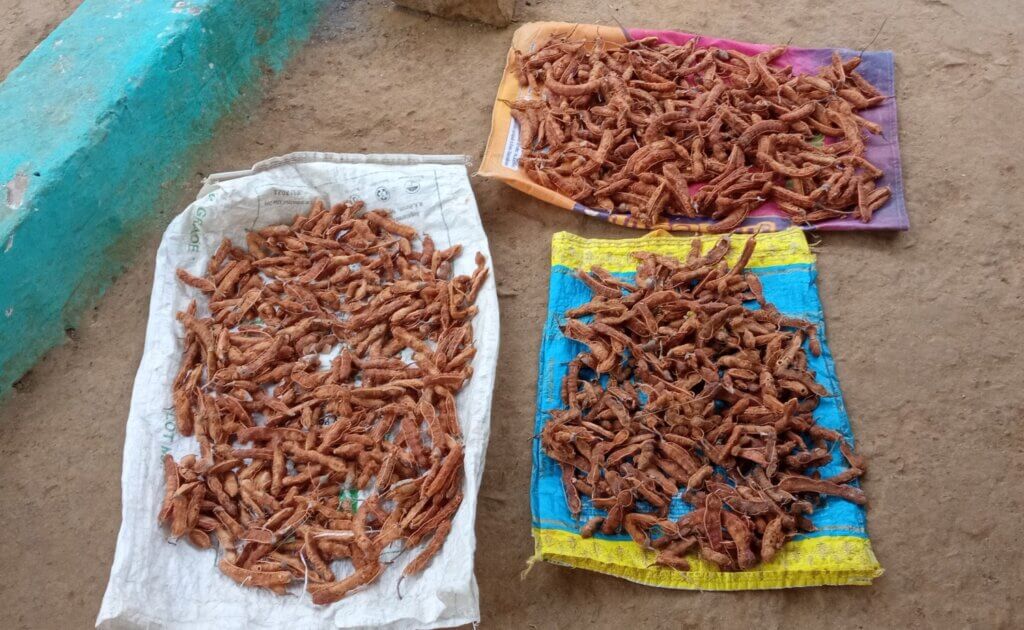
In February, fishing and harvesting tamarind and sundakaai (turkey berry Solanum torvum) is common in our village, for consumption at home and as a source of income. Sundakaai, however, is harvested only for commercial uses and sold for Rs. 250 per pakkam (small bundle). Vijayan observes how the people in his village follow a healthy diet.
The following day (February 3), 17 children were taken to the local anganwadi in Kanakkundur after school at around 5 pm. Here, they spent a fun hour learning to identify 40 species of Tamil Nadu’s birdlife in both English and Tamil. They were also made aware of the role of birds in forests as seed dispersers, and why forests are important. The role of seed dispersion in regulating climate was highlighted. The class was conducted by Vijayan.

